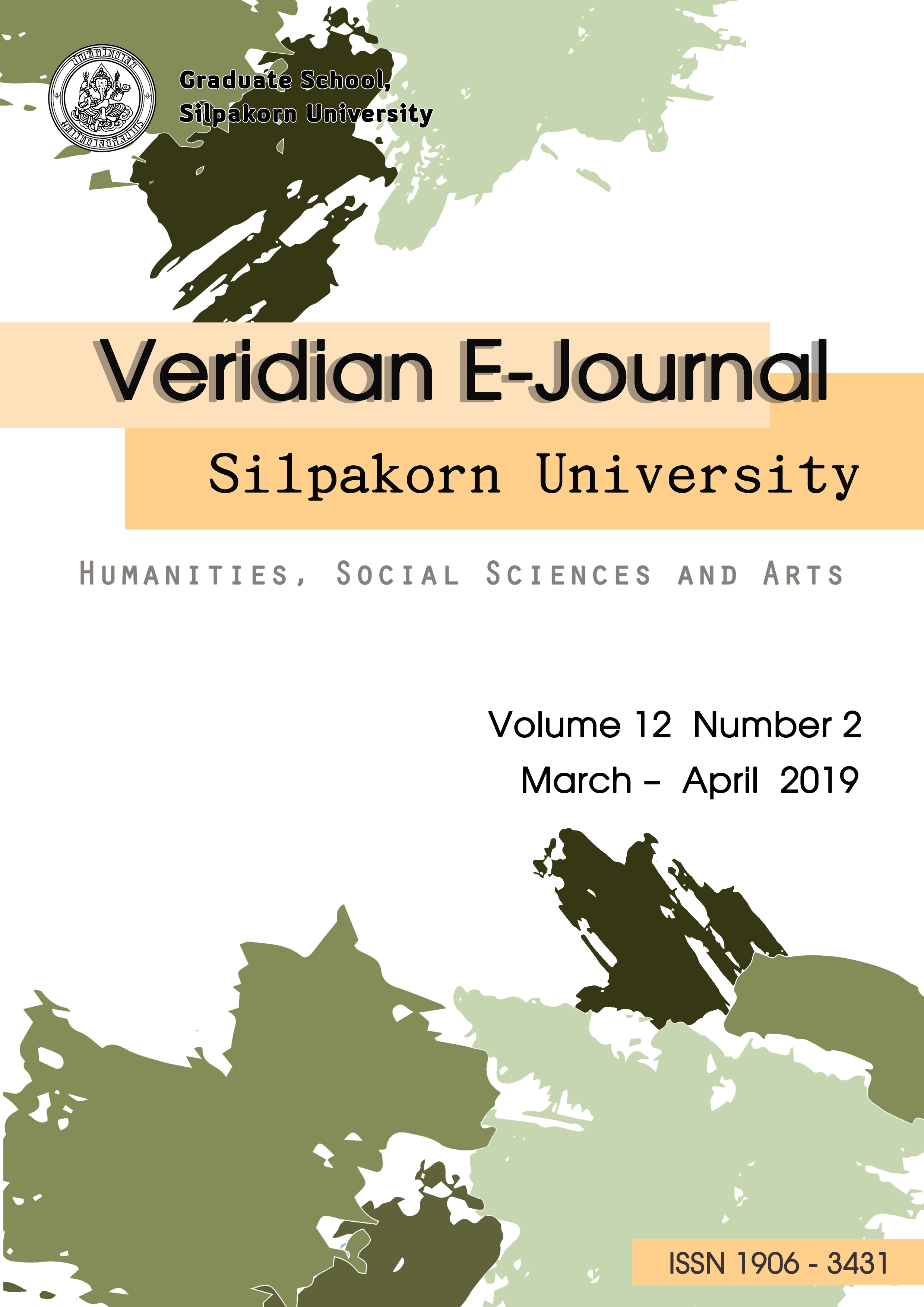การพัฒนาแบบจำลองความสัมพันธ์เชิงสาเหตุการสอนงานของผู้บริหารที่มีอิทธิพลต่อผลการปฏิบัติงานของพนักงานโดยมีการแลกเปลี่ยนระหว่างผู้นำและสมาชิก ความผูกพันของพนักงาน และความพึงพอใจในการทำงาน เป็นตัวแปรคั่นกลาง (Developing a Causal Relationship Model of Managerial coaching influencing Employee performance: The Mediating roles of Leadership-member-exchange, Employee engagement and Job satisfaction on Employee performance)
Main Article Content
บทคัดย่อ
การศึกษาครั้งนี้มีวัตถุประสงค์เพื่อ พัฒนาแบบจำลองความสัมพันธ์เชิงสาเหตุ อิทธิพลการสอนงานของผู้บริหารที่มีต่อผลการปฏิบัติงานของพนักงาน โดยมีการแลกเปลี่ยนระหว่างผู้นำและสมาชิก ความผูกพันของพนักงาน และ ความพึงพอใจในการทำงานเป็นตัวแปรคั่นกลาง และเพื่อทดสอบความสอดคล้องของแบบจำลองที่พัฒนาขึ้นกับข้อมูลเชิงประจักษ์ ผู้วิจัยใช้ระเบียบวิธีวิจัยเชิงปริมาณ (Quantitative research approach) ในการวิจัยครั้งนี้ โดยที่ประชากรของการวิจัยคือพนักงานของบริษัทขายตรงแบบหลายชั้น (multi-level-marketing) ชั้นนำในประเทศไทยจำนวน 10 บริษัท ขนาดของกลุ่มตัวอย่างเท่ากับ 500 คนได้มาโดยการเลือกตามสะดวก (Convenient selection) เครื่องมือในการวิจัยคือ แบบสอบถาม (Questionnaire) จำนวน 1 ฉบับ ประกอบด้วยข้อคำถามปลายปิด และข้อคำถามแบบประเมินค่า 5 ระดับ ทำวิเคราะห์ข้อมูลเพื่อทดสอบความสอดคล้องของแบบจำลองที่พัฒนาขึ้นกับข้อมูลเชิงประจักษ์ด้วย สถิติการวิเคราะห์เส้นทาง (path analysis) ผลการศึกษาพบว่า แบบจำลองดังกล่าว มีความสอดคล้องกับข้อมูลเชิงประจักษ์ โดยมีดัชนีความสอดคล้องผ่านเกณฑ์ที่กำหนดได้แก่ Chi-square=134.17, df=113, P-value=0. 08499, RMSEA=0.019
ผลการทดสอบสมมติฐานพบว่า การสอนงานโดยผู้บริหารมีอิทธิพลทางบวกต่อการแลกเปลี่ยนระหว่างผู้นำและสมาชิก และ ความผูกพันของพนักงาน การแลกเปลี่ยนระหว่างผู้นำและสมาชิกมีอิทธิพลทางบวกต่อความพึงพอใจในการทำงานของพนักงาน ความผูกพันของพนักงานมีอิทธิพลทางบวกต่อความพึงพอใจในการทำงานของพนักงาน การสอนงานโดยผู้บริหารมีอิทธิพลทางบวกต่อผลการปฏิบัติงานของพนักงาน การแลกเปลี่ยนระหว่างผู้นำและสมาชิกมีอิทธิพลทางบวกต่อผลการปฏิบัติงานของพนักงาน ความผูกพันของพนักงานมีอิทธิพลทางบวกต่อผลการปฏิบัติงานของพนักงาน ความพึงพอใจในการทำงานของพนักงานมีอิทธิพลทางบวกต่อผลการปฏิบัติงานของพนักงาน
The objectives of this research were to develop a causal relationship model of managerial coaching influencing employee performance with leadership-member-exchange, employee engagement and Job satisfaction as mediator variables. And to test the fitness of the developed model with the empirical data. The quantitative research approach was applied to this study. Whereas, the research population were the sales persons of 10 leading multi-level-marketing companies in Thailand. The number of research samples were 500. The convenient selection was used to select the research samples. A research tool was the questionnaire which comprised the opened-end questions and the five levels rating-scale questions. The data analysis to test the congruence between the developed model and the empirical data was executed vid Path analysis statistic. The outcome revealed that the developed causal relationship model was fit with the empirical data. With Chi-square=134.17, df=113, P-value=0. 08499, RMSEA=0.019 which were consistent with the goodness of fit criterion.
The result of hypothesis test yielded that managerial coaching had a direct positive influence on leader-member exchange and employee engagement. Leader-member exchange had a direct positive influence on employee job satisfaction. Employee engagement had a direct positive influence on employee job satisfaction. Managerial coaching had a direct positive influence on employee performance. Leader-member exchange had a direct positive influence on employee performance. And employee job satisfaction had a direct positive influence on employee performance

